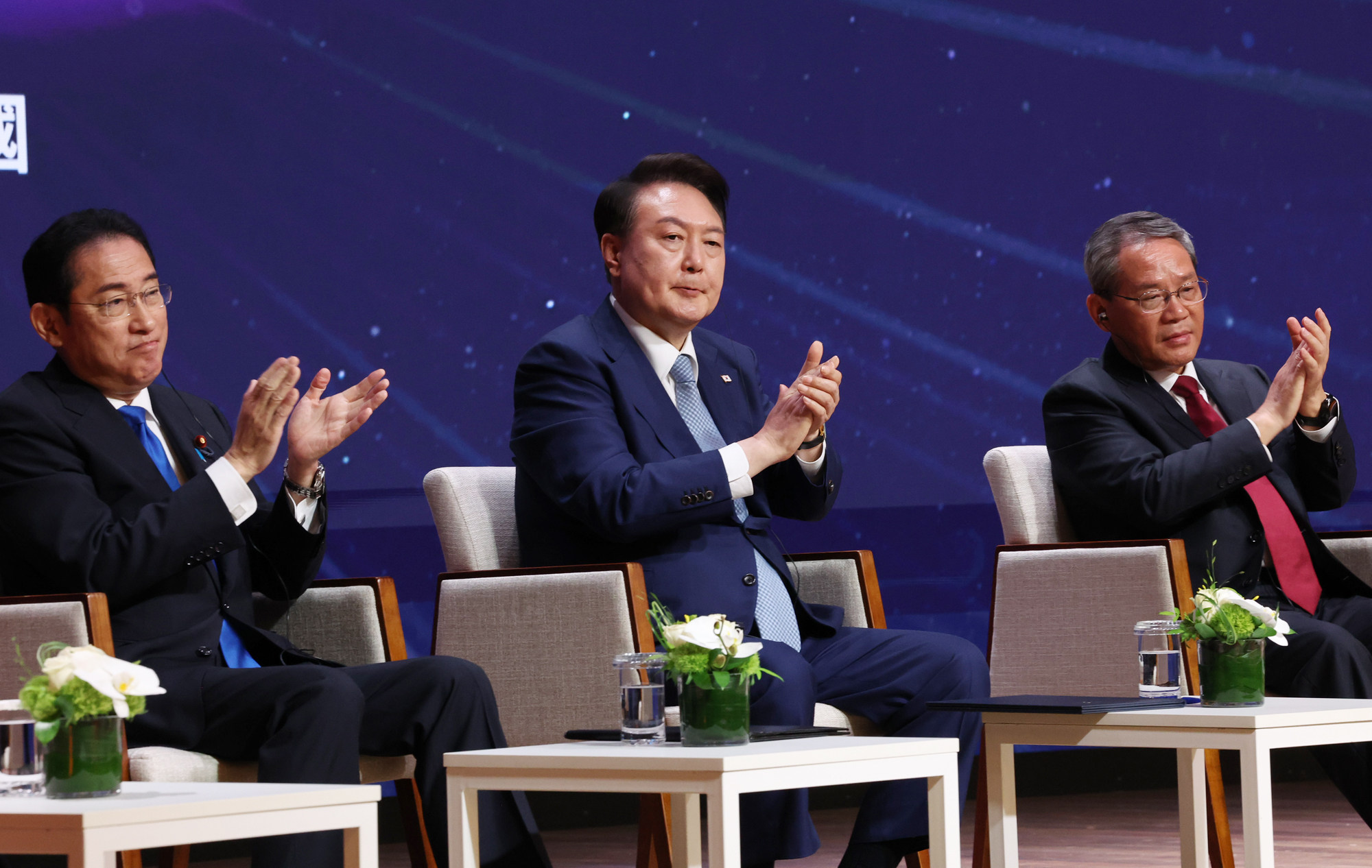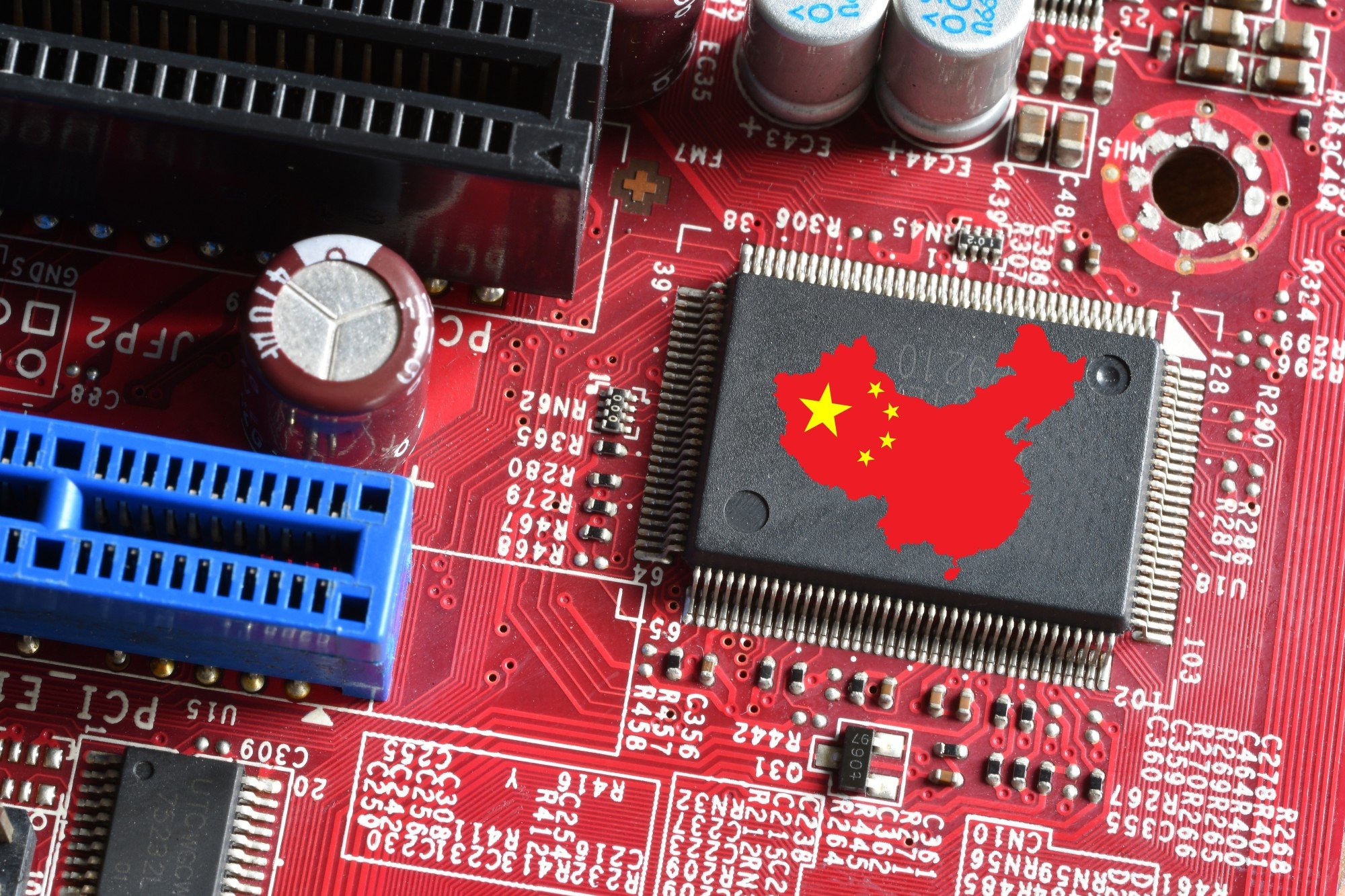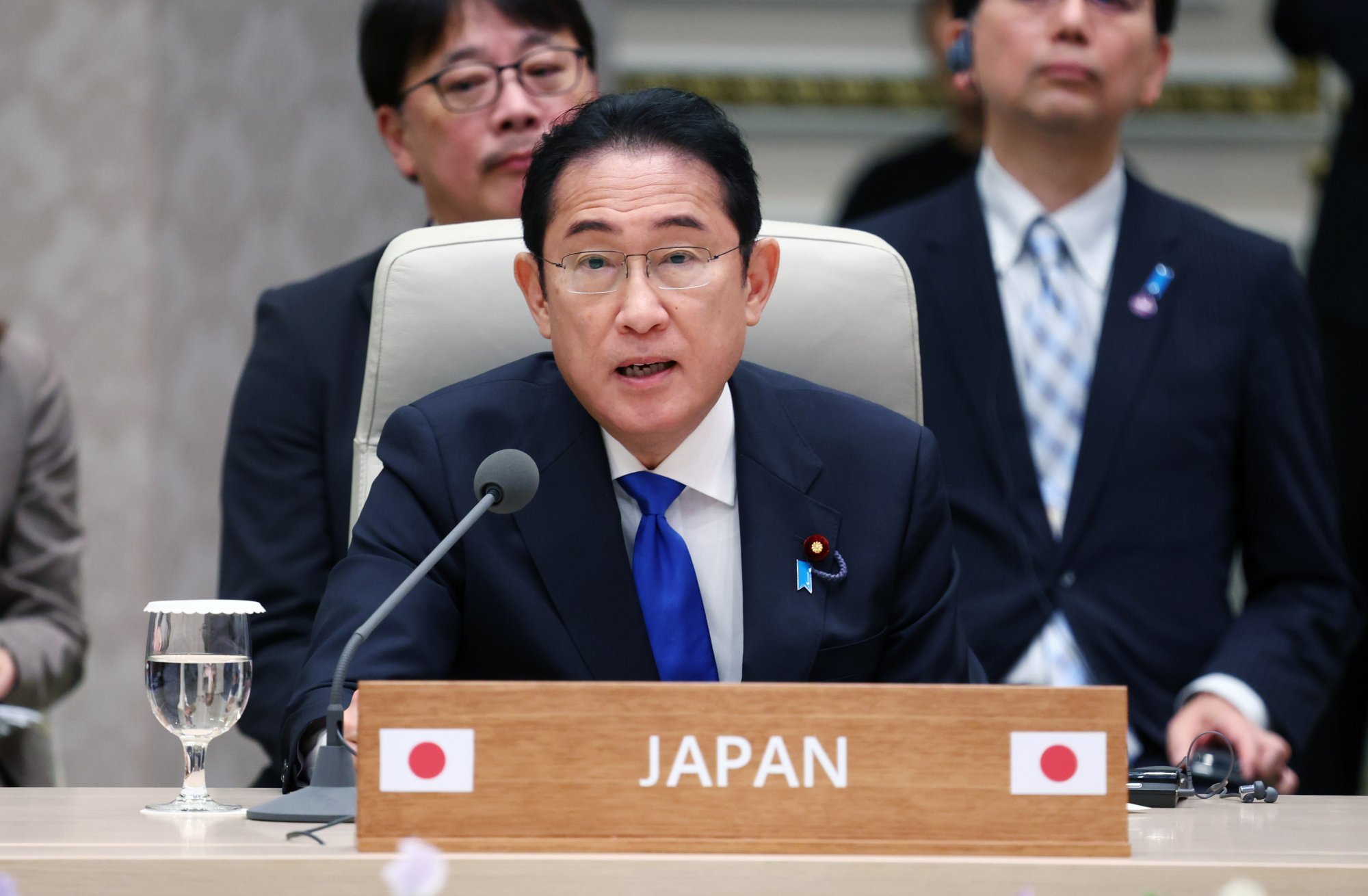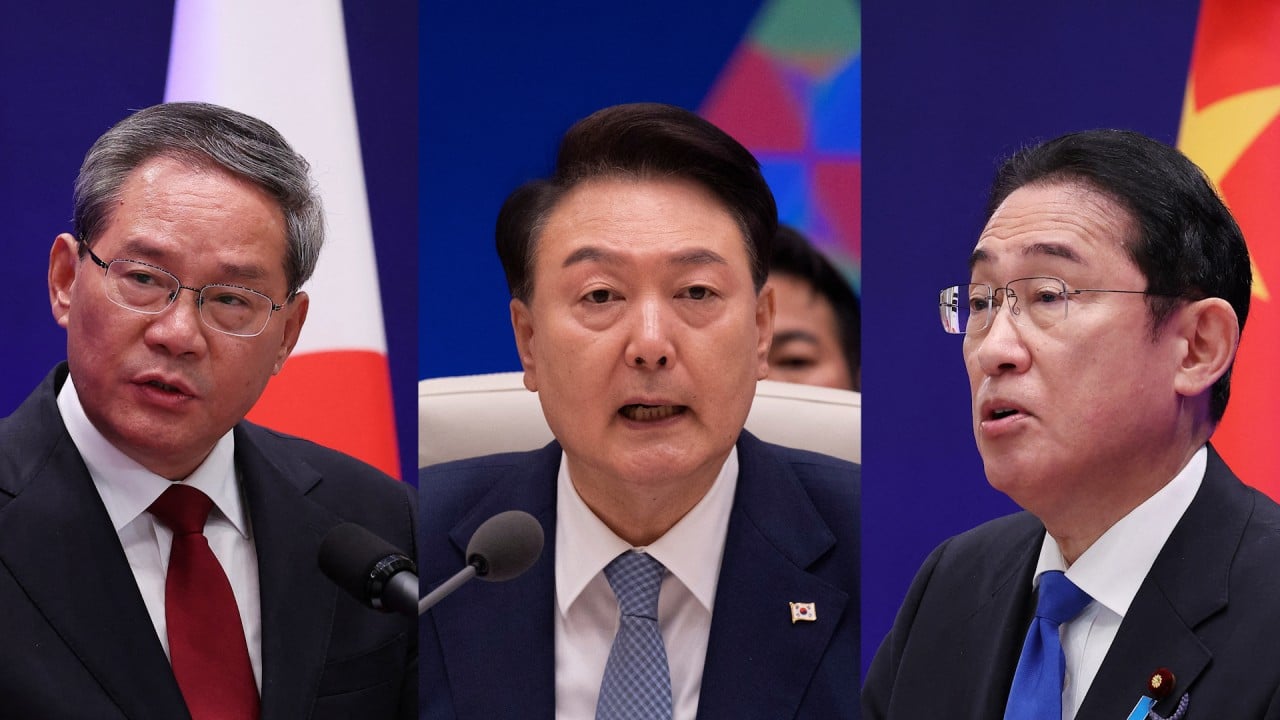While negotiation for the trilateral FTA began in 2012, talks have stalled after the 16th round held in November 2019.

On May 30, China’s Ministry of Commerce said the FTA would further open markets, reduce trade barriers and increase investment due to the three countries’ strong industrial links and economic complementarity.
Jayant Menon, a senior fellow at the Singapore-based ISEAS-Yusof Ishak Institute, said if negotiations for the FTA were already difficult, escalating tensions between the United States and China in recent years would likely lead to the “death knell” for the pact.
“The prospects for concluding this FTA have been further reduced by the entry into force of the RCEP, which includes all three countries and more. There is little political appetite for it outside China and the economic rationale for it is diminishing as RCEP progresses,” Menon said.
Pratnashree Basu, an Indo-Pacific associate fellow at the Strategic Studies Programme and Centre for New Economic Diplomacy at the India-based Observer Research Foundation, said while there was a degree of political will to push for the FTA, the tense geopolitical environment meant that negotiations for a deal would be “protracted”.
An FTA typically takes several years to negotiate, especially when large economies with significant existing trade volumes and complex economic relationships are involved, according to Basu.
The GDP of China, Japan and South Korea totalled US$17.52 trillion, US$5.31 trillion and US1.71 trillion, respectively, last year.
“The need to address and reconcile various economic, political, and strategic interests can further extend the timeline,” Basu said, adding that both Tokyo and Seoul were aiming to lessen their risk exposure by diversifying their trade and supply chains away from China.
In 2022, Japan passed the Economic Security Promotion Act to develop more resilient supply chains, promote infrastructure security and increase the use of critical technologies. It also extended financial support for firms to diversify their operations away from China, especially in crucial industries such as semiconductors.
In December, South Korea announced its 3050 Strategy to stabilise its supply chain involving 185 critical materials and reduce the proportion of imports from certain countries, particularly China, to less than 50 per cent by 2030.
Pointing to growing public support in Japan and South Korea to ease economic dependence on China, Basu said the two countries would be “selective” about the sectors to be included in FTA negotiations.
“Only certain sectors, such as services, where mutual benefits are more apparent and risks are lower, will be prioritised,” Basu said.

The resumption of FTA talks is “more symbolic than practical”, said Li, who has a PhD from the S. Rajaratnam School of International Studies at the Nanyang Technological University.
“Each of the countries needs the summit and the resumption of the FTA [talks] to serve their political and foreign policy goals rather than to realise economic benefits. For instance, China needs to demonstrate that it is still a good friend with countries which are close to the US”.
Similarly, Japan and South Korea needed to show that their respective foreign policy was not dominated by the US, Li added.
Negotiations for the FTA might take years and even if a final deal is reached, it is unlikely to be comprehensive, according to Li.
“It is possible that the three [countries] may sign an FTA with selective industries first, and continue the negotiation for the upgraded versions later,” she added.
Ryosuke Hanada, a Sydney-based security analyst, said unless the trilateral FTA were to go beyond the scope of the already comprehensive RCEP, Japan and South Korea would have “little incentive” to move negotiations forward.

“[That is] because their corporate sectors need transparent and accountable economic rules protecting their business in China from arbitrary applications of Chinese rules and norms,” Hanada said.
Without more stringent rules, Japan and South Korea would face problems in convincing the US about the rationale for the FTA, Hanada said. Beijing was also aiming to increase the economic dependence of Japan and South Korea on China through the FTA, he added.
Chinese state-run tabloid The Global Times said in an editorial on May 27 that trade relations between China, Japan, and South Korea were interdependent and stable despite “continuous actions and noises led by the US” about “decoupling”. It also noted that China was the largest trading partner of Japan and South Korea.
China’s two-way trade with Japan and South Korea, respectively, totalled about US$295 billion and US$287 billion last year.
In contrast with US protectionism in recent years, China was positioning itself as a supporter of free trade, Hanada said. Nonetheless, the trilateral FTA was unlikely to be realised given the lack of political will for it, he added.
“The China-Japan-South Korea FTA would be politically costly and is of little economic benefit.”


